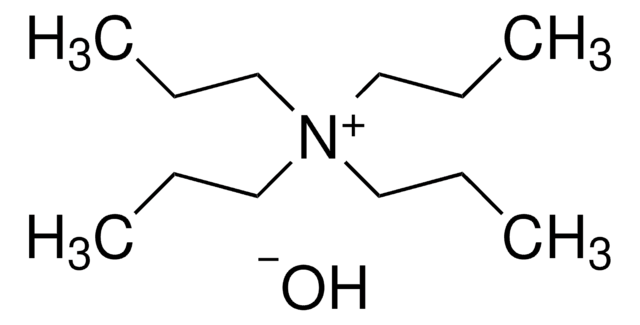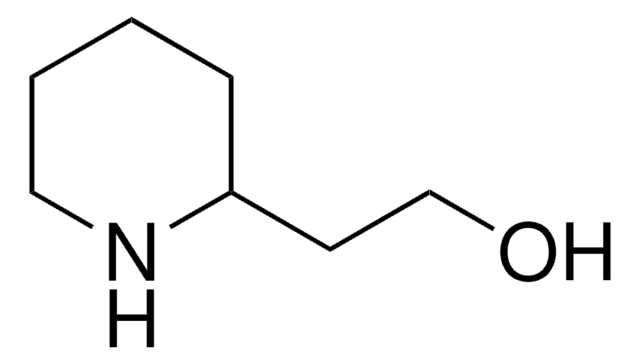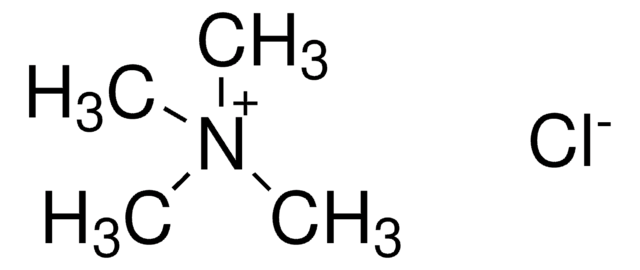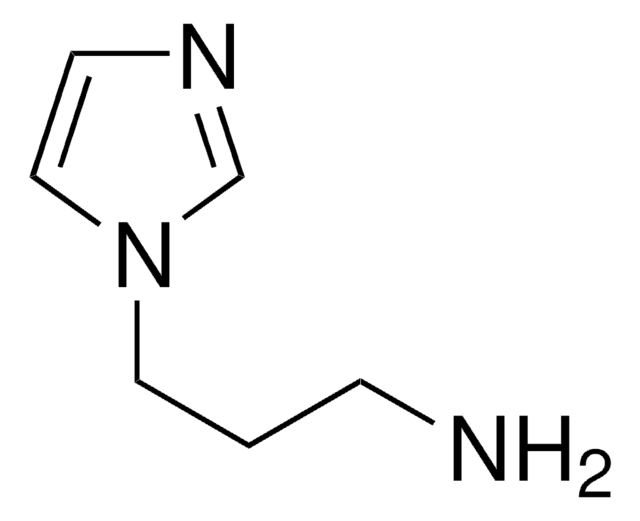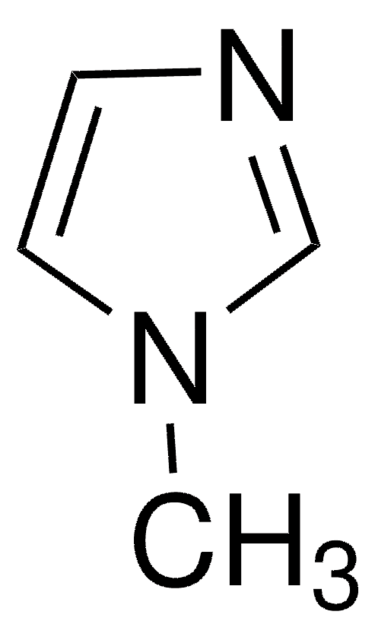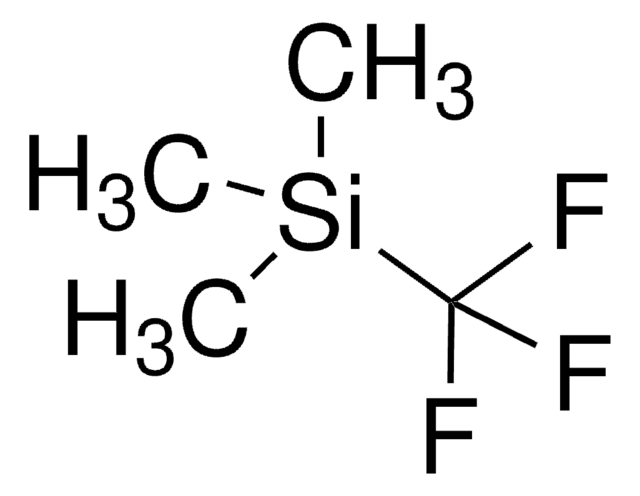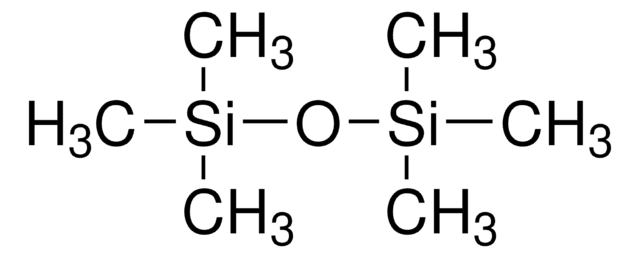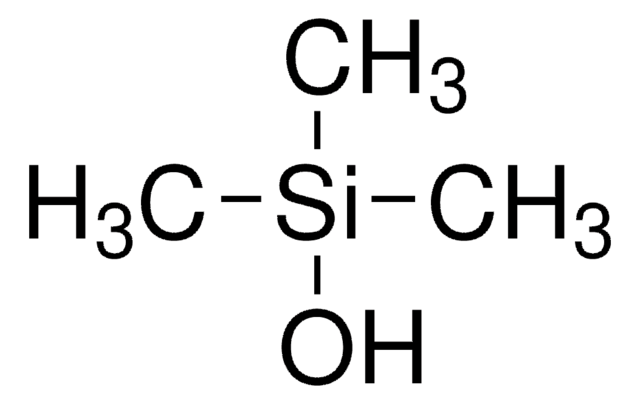438669
Tetramethylammonium silicate solution
15-20 wt. % in H2O, ≥99.99% trace metals basis
Synonym(s):
Tetramethylammonium salt with silicic acid
About This Item
Recommended Products
Assay
≥99.99% trace metals basis
form
liquid
concentration
15-20 wt. % in H2O
density
1.072 g/mL at 25 °C
SMILES string
C[N+](C)(C)C.C[N+](C)(C)C.C[N+](C)(C)C.C[N+](C)(C)C.[O-][Si]([O-])([O-])[O-]
InChI
1S/4C4H12N.O4Si/c5*1-5(2,3)4/h4*1-4H3;/q4*+1;-4
InChI key
APSPVJKFJYTCTN-UHFFFAOYSA-N
Looking for similar products? Visit Product Comparison Guide
Signal Word
Danger
Hazard Statements
Precautionary Statements
Hazard Classifications
Skin Corr. 1B
Storage Class Code
8A - Combustible corrosive hazardous materials
WGK
WGK 3
Flash Point(F)
Not applicable
Flash Point(C)
Not applicable
Personal Protective Equipment
Choose from one of the most recent versions:
Already Own This Product?
Find documentation for the products that you have recently purchased in the Document Library.
Customers Also Viewed
Articles
Recent demand for electric and hybrid vehicles, coupled with a reduction in prices, has caused lithium-ion batteries (LIBs) to become an increasingly popular form of rechargeable battery technology.
Silica is a very popular inorganic nanomaterial used in a wide range of applications including fillers for rubber, catalyst supports, separation media, carriers in food and agriculture, and abrasive/anticaking agents in cosmetics. It is also widely believed to be an important material for biomedical applications for following reasons.
Synthesis of Melting Gels Using Mono-Substituted and Di-Substituted Alkoxysiloxanes
Our team of scientists has experience in all areas of research including Life Science, Material Science, Chemical Synthesis, Chromatography, Analytical and many others.
Contact Technical Service


